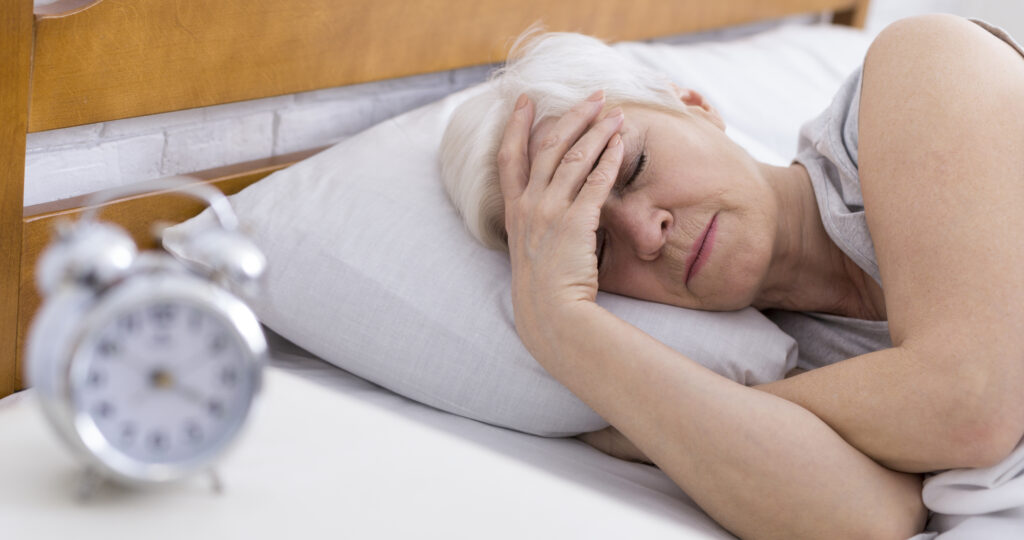According to a double-blind, placebo-controlled trial in Nutrients, vitamin E was shown to help alleviate chronic insomnia disorder and enhance sleep quality in postmenopausal women.
Insomnia is one of the most common conditions during and after menopause. For this study, scientists wanted to know if vitamin E supplements could be a viable alternative to sedative drugs and hormonal therapy for the problem. In previous research, vitamin E has been shown to help ease hot flashes, so the vitamin has been associated with menopause therapies in the past.
Study Details
The trial involved 160 postmenopausal women with chronic insomnia disorder. Participants were organized into two groups — the vitamin E group received 400 IUs of mixed tocopherols daily, while the placebo group was given an identical capsule. Researchers used the Pittsburgh Sleep Quality Index (PSQI) to evaluate sleep quality.
According to the published study, the PSQI score was “significantly lower (indicating better sleep quality) in the vitamin E group compared with the placebo,” wrote the research team. The scientists also found a “significant reduction” in sedative drug use in the vitamin E group; there was no statistically significant reduction in sedative use in the placebo group.
“The main findings of our study indicate that a one-month vitamin E prescription can improve sleep quality and reduce sedative drug use in postmenopausal women with chronic insomnia disorder. There is much evidence to back up the benefits of vitamin E in menopause, whether it is for postmenopausal symptoms or bone health. However, as described previously, no clinical trial has been conducted to evaluate the potential effect of vitamin E on chronic insomnia disorder, especially in postmenopausal women,” said the study authors.
Researchers theorize that vitamin E, as a potent antioxidant, works in part to help address oxidative stress, which is associated with chronic sleep deprivation.
Conclusion
Chronic insomnia disorder is one of the most common problems among postmenopausal women, with various treatment strategies available. We have examined vitamin E’s potential as an alternative treatment for chronic insomnia disorder that improves sleep quality and reduces sedative drug use.






